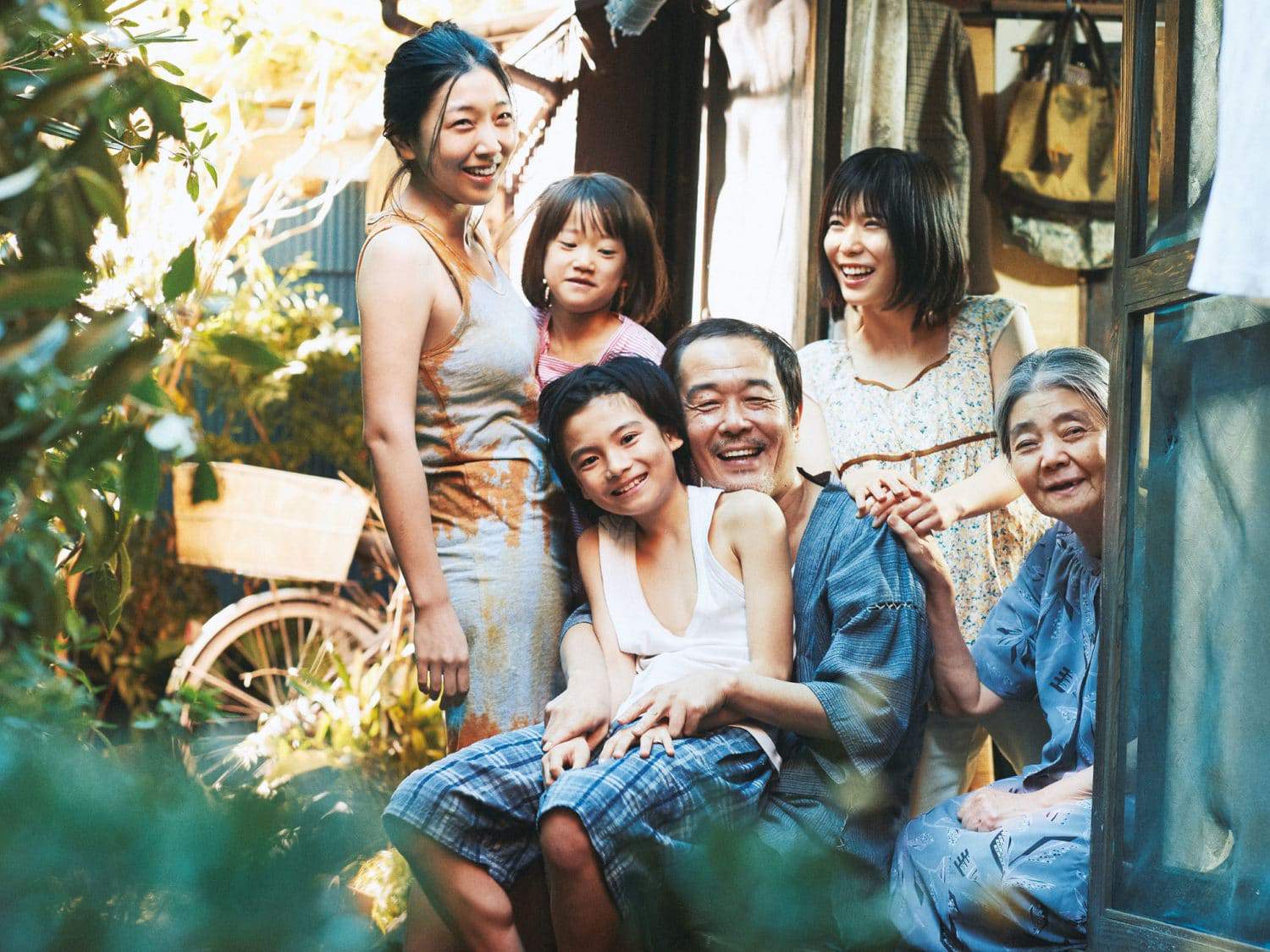Families are like systems. Some are feedback loops: what you put in you get out. There’s an order to them. Everyone has their place and everyone knows what that is. Other systems aren’t quite as stream-lined. There’s an internal logic that presents as dysfunction to the outside. For Japanese director Hirokazu Koreeda, families are a never-ending source of fascination. He’s interested in them in all forms: after the death of their estranged father (Our Little Sister), after the long-ago death of a son (Still Walking), after the discovery that babies were switched at birth (Like Father, Like Son). Now, in Shoplifters, Koreeda explores a chosen family and its perceived illegitimacy in the eyes of government authorities. Always returning to the question of “what makes a family: DNA or affection?”
The film opens with a dance routine. Well, sort of. A young boy and older man share a fist bump before engaging in some stealthy shoplifting at a local supermarket. It might not be dance in the traditional sense, but their moves are choreographed and injected with the spontaneity of great dancers. Still, Koreeda doesn’t make their skill flashy. They need to be good thieves because they need to eat. Before he steals something, the pre-teen Shota (Jyo Kairi) performs a little ritual with his fingers. Whether it’s superstitions or just a quirky habit, these rituals reinforce the bond between Shota and Osamu, played by Koreeda regular Lily Franky.
On their way home, they cross paths with a shivering toddler (Miyu Sasaki), standing alone on her balcony. They take her home with them with the pretense of just warming her up with some hot stew. But Osamu’s wife Nobuyo (the wonderful Sakura Ando) resents having another mouth to feed, but as soon as she sees the scars on the child she can’t bring herself to send her home. A little while goes by and they’ve still heard no reports of a missing child, so they christen her into the family. They burn her clothes, cut her hair, and give her a new name: Rin.
Everyone in the family works. Osamu works the odd hard-hat jobs (until he injures his foot), Nobuyo works at a factory and then a department store and Aki (Mayu Matsuoka) is a sex worker, who works in front of a one-sided mirror at a strip club. And they all share Grandma’s meager pension. They justify their shoplifting with the tenuous argument that as long as they’re only stealing from shops, they’re not stealing from people. No small crime is too small if it means getting money out of it. And Koreeda doesn’t show a flicker of judgement towards this ragtag family that has been mostly left behind by their country’s economy.
In keeping with form, Koreeda divulges information patiently. Because connections between family members aren’t outlined straight away, at the beginning we assume that everyone is biologically related, except for Rin. But when Osamu pleads with Shota to call him “Dad”, it becomes clear that these connections are earned, they’re not born into. Names are an attempt to bridge the biological gap, and Rin and Nobuyo get so close that their relationship would surely pass as mother/daughter if in public. But it all comes to an end in an explosive final half hour. Koreeda’s social critique comes to the fore when Osamu and Nobuyo get pegged by the media as villains, not resourceful victims. After watching them this whole time, we know that their criminal actions were motivated by love and survival, not ill-will. And despite the detective interrogations revealing the lies characters hid from each other, their lies don’t come across as malicious, but protective.
The mistake that often befalls family dramas is that the family takes precedence over the individual thoughts and idiosyncrasies of each family member. We can’t see the trees for the forest, if you will. But Koreeda gives every character their space (even in such a cramped house) while still feeling like they’re a cohesive, if makeshift, family unit. If Like Father, Like Son swayed too close at times to the binary of rich and poor while sentimentalizing poverty, Shoplifters stays away from “poverty porn.” He does not judge his characters but he is also not afraid to show their greed and deception. Koreeda avoids sensationalism when drawing on the many colors he uses to paint this family portrait.

